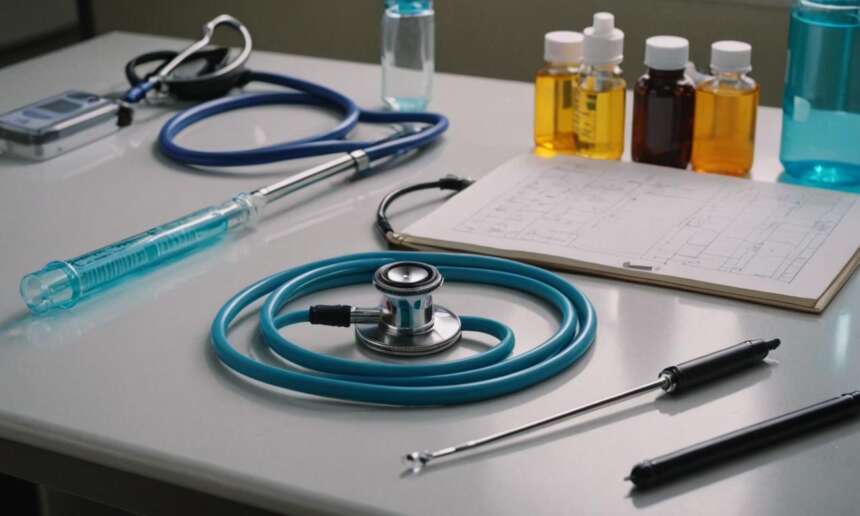Practical nursing is a critical component of the healthcare system, providing essential care to patients in various settings. A practical nurse, also known as a licensed practical nurse (LPN) or vocational nurse (VN) in some regions, plays a crucial role in assisting physicians and registered nurses (RNs) in delivering quality healthcare services.
Responsibilities of a Practical Nurse
Practical nurses are responsible for a wide range of duties aimed at promoting patient well-being and ensuring the smooth operation of healthcare facilities. Some of their key responsibilities include:
- Administering medication as prescribed by healthcare providers.
- Monitoring patients’ vital signs and reporting any abnormalities.
- Assisting with activities of daily living, such as bathing, dressing, and feeding.
- Collecting samples for laboratory testing.
- Providing basic wound care and dressing changes.
- Documenting patients’ medical histories and treatment plans.
- Educating patients and their families about various health conditions and self-care techniques.
Education and Training
Becoming a practical nurse typically requires completing a state-approved nursing program, which usually lasts around one year. These programs, offered by vocational schools, community colleges, and technical institutes, cover essential topics such as anatomy, physiology, pharmacology, and nursing principles.
After completing the educational requirements, aspiring practical nurses must pass the National Council Licensure Examination for Practical Nurses (NCLEX-PN) to obtain licensure and practice legally in their respective states.
Work Settings
Practical nurses can work in various healthcare settings, including:
- Hospitals
- Long-term care facilities
- Physicians’ offices
- Home healthcare agencies
- Rehabilitation centers
Depending on the setting, the daily tasks and patient populations may vary, but the core responsibilities of practical nurses remain consistent.
Collaboration with Healthcare Team
Practical nurses collaborate closely with other members of the healthcare team, including registered nurses, physicians, and allied health professionals. They communicate patient status updates, participate in care planning meetings, and ensure that patients receive comprehensive and coordinated care.
Advancement Opportunities
While practical nursing offers a rewarding career in itself, some individuals may choose to advance their education and become registered nurses or pursue specialized certifications in areas such as wound care, gerontology, or intravenous therapy. Continuing education and professional development opportunities allow practical nurses to expand their skills and take on additional responsibilities within the healthcare field.
Practical nurses play a vital role in delivering quality healthcare services and promoting patient well-being. Through their dedication, compassion, and expertise, they contribute to the overall success of healthcare organizations and make a meaningful difference in the lives of their patients.
Salary and Job Outlook
One aspect often considered by those pursuing a career in practical nursing is the salary and job outlook. The median annual wage for licensed practical and licensed vocational nurses was $48,820 in May 2020, according to the U.S. Bureau of Labor Statistics. Job opportunities for practical nurses are expected to grow by 9% from 2020 to 2030, faster than the average for all occupations, driven by the aging population and the need for long-term care services.
Work Environment
Practical nurses work in diverse environments, ranging from bustling hospital wards to quiet residential homes. Each setting presents unique challenges and opportunities for patient care. It’s essential for practical nurses to adapt to different work environments and provide quality care regardless of the setting.
Continuing Education Requirements
As healthcare practices evolve and new technologies emerge, practical nurses must engage in continuing education to stay updated with the latest advancements in the field. Many states require practical nurses to complete a certain number of continuing education credits to renew their licenses periodically. These courses cover topics such as infection control, patient safety, and legal issues in nursing practice.
Frequently Asked Questions
| Question | Answer |
|---|---|
| What is the difference between a practical nurse and a registered nurse? | While both practical nurses and registered nurses provide direct patient care, registered nurses typically have more extensive education and can perform advanced nursing tasks such as administering medications intravenously, interpreting diagnostic tests, and developing care plans. |
| Can practical nurses specialize in a particular area of healthcare? | Yes, practical nurses can pursue specialized certifications in various areas such as gerontology, wound care, and IV therapy. These certifications enable them to provide specialized care and may lead to advancement opportunities within their field. |
| What are the main challenges faced by practical nurses? | Practical nurses often encounter challenges such as heavy workloads, long hours, and emotional stress due to dealing with patients’ illnesses and injuries. Additionally, staying current with rapidly evolving medical practices and technology can be demanding. |




